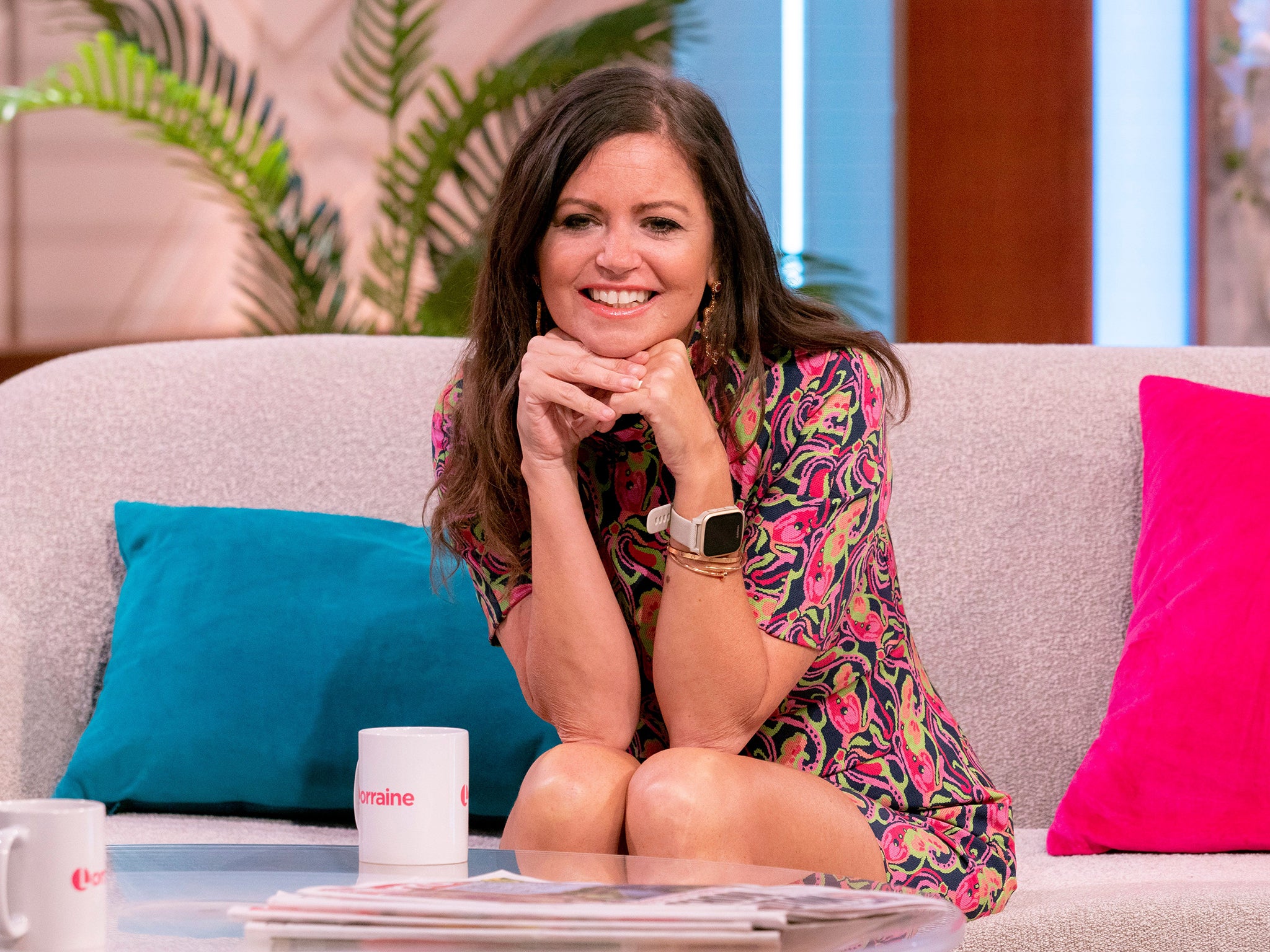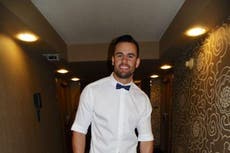‘We told each other everything’: Deborah James’ husband on cancer campaigner’s dying days
Wife’s terminal illness ‘forced us to be grateful, to feel blessed for small things’, says widower

The widower of “bowel babe” Dame Deborah James has revealed how her cancer broke down all barriers in the family as they cared for her in her final weeks.
Sebastien Bowen said they told each other everything, and in the middle of the night would discuss how their children would grow up without her, as well as how he himself would cope after she was gone.
And Dame Deborah, who died two months ago aged 40, left him a final gift that was a surprise after her death – a letter explaining why she loved him so much and why they should have no regrets. “That was the best thing she could have given me,” he said.
After being diagnosed with bowel cancer six years ago, the broadcaster campaigned energetically to spread awareness of the disease and to fundraise. Donations to the fund passed £7m.
In an interview with The Times, Mr Bowen, 42, recalled that at first doctors told her she was unlikely to have cancer.
But he said: “She has now shown that anyone can get it. She had symptoms for four months and even a bowel cancer test wasn’t positive. But she booked herself in for a colonoscopy privately because she felt something wasn’t right.” Eventually she was diagnosed with a lethal mutation and had an extra three years thanks to a new drug.
In his wife’s final months, the couple managed to have moments of enjoyment and laughter.

“Even through the darkest times when she wasn’t able to walk, wash or go to the toilet, she’d woken up terrified in the night or I would be pushing her around in her wheelchair, we could still find moments of joy and escape to RHS Wisley at the crack of dawn to buy trees for the children and family to plant in her memory; just to be together and forget about the awfulness of the situation and lose ourselves for an hour,” he said.
They watched their favourite films, read poetry and even went to the Chelsea Flower Show together.
“She was making the most of every last moment. But that was her. That is how I will always remember Deborah – the ability in the worst of times to embrace life. More than anyone I know she loved life, even more so when it became so short and each minute counted,” he told the paper.
Dame Deborah’s cancer “gradually transformed her in that way, and me and the family; it made us all re-evaluate our time and relationships,” he said.

“It forced us to be grateful, to feel blessed for small things. We went out in the rain in the garden because she didn’t know whether it would be the last time she’d feel raindrops on her head. She wanted to feel the sun on her cheeks and smell the grass.”
All the barriers broke down. We were our raw selves
In his wife’s final few weeks this summer, she returned to her parents’ home in Woking, Surrey, to die surrounded by her family, siblings and children.
“I did think if I was a single carer, it would have been brutal. It was so intense, although she became very light to carry in my arms.
“She was so weak she couldn’t do much on her own, which she found frustrating as she was naturally fiercely independent.
“She was paralysed at the end from her waist down and had to deal with the psychological battle of the reality of her new handicap. She couldn’t even go to the kitchen to get food or clean or dress herself.”
When the family were told she might have just days to live, “somehow she found this inner strength and managed another eight weeks”, Mr Bowen said. “They were some of the most mind-blowing, magical days of both our lives.
“I’m not going to pretend it was easy. It was a new experience for all of us and we had to find our feet, but it also brought us closer to her and to each other as Hugo [14] brushed her hair or Eloise [12] fetched her drinks. All the barriers broke down. We were our raw selves. There was complete honesty.”
Dame Deborah once jokingly said she had warned her husband not to marry a bimbo after she died. “Find someone else who can make you laugh like we did,” she said, according to The Times.
“I hated it when she told me she wanted me to move on and find someone else to love. I’d always close that chat down. No one knows what they will do after their partner dies, how grief will hit them, how they will adapt.
“At the moment, I can’t see having any interest in anyone else. It’s all about making sure the family is as strong as possible.”
Join our commenting forum
Join thought-provoking conversations, follow other Independent readers and see their replies
Comments




Bookmark popover
Removed from bookmarks